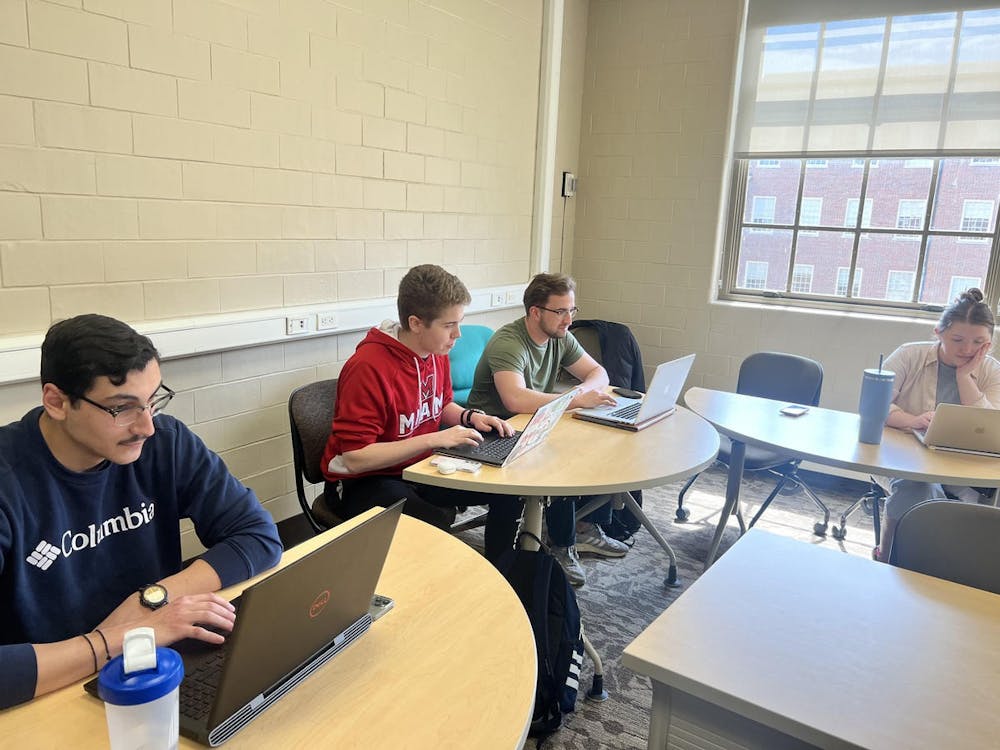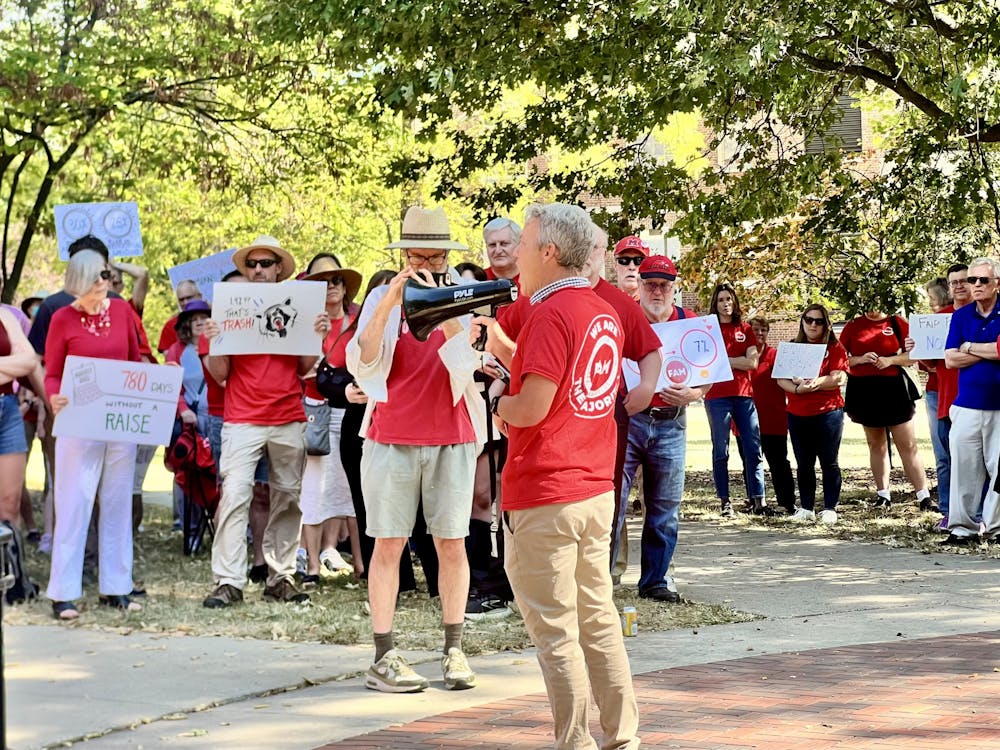When most people think of undergraduate research, the first thing that comes to mind is probably not research that will influence foreign policy in the U.S.
But, the Diplomacy Lab does just that.
John Forren is the chair of the department of justice and community studies as well as the executive director of the Menard Family Center for Democracy, which houses the Diplomacy Lab. This semester, he is leading a team of students as they research the International Criminal Court.
“This is exactly the kind of thing that the center is here to do: go out in the world and, in this case, do research on civic issues,” Forren said. “This is research that is not hypothetical. It’s research that will produce results that will be used by the State Department.”
The process is relatively simple: the U.S. State Department sends out potential projects to its partner institutions, and the director of the lab at each university forwards applicable projects to various departments.
From there, faculty members create a pitch for the project and send it back to the State Department, where it is approved or denied. Faculty members then select a group of students to participate in the research, and the project commences at the start of the following academic semester.

Students meet with the State Department at least twice a semester, once at the beginning and then to present their findings at the end.
The program has been at Miami since 2014, but over the last couple of years, it had fallen dormant.
When Phillip Arcenaux started at Miami University three years ago, he had no clue what the lab was. Nor did he have any idea that Miami was part of the program. After doing some digging, Arcenaux, now the director of Miami’s Diplomacy Lab, found that the program had been involved at the university for a while.
“This has existed since 2014 … and the program kind of died out,” Arcenaux said. “I randomly discovered it and saw that Miami was on the list of partner institutions. I reached out to a bunch of different people and no one knew what it was.”
The lab, which was relaunched during the 2021-22 spring semester, has since taken on four different projects. Fourteen people collaborated to create the first project.
Enjoy what you're reading?
Signup for our newsletter
“They worked with the U.S. embassy in Riyadh … to explore youth entrepreneurship in Saudi Arabia,” Arcenaux said.
Forren also noted that while the Menard Family Center’s primary role is to be the Diplomacy Lab’s administrative home, faculty who are interested in the projects can also join.
“We provide funding, limited funding, but funding for faculty who are interested in pursuing these projects … to give faculty a little bit of incentive to put these proposals together,” Forren said.
Matthew Bryan, a senior history major, is using the lab for his capstone project. He said it has been beneficial because he is able to further his own research.
“I had an internship last summer that worked with studying the ICC [International Criminal Court] and international organizations, mainly in Latin America,” Bryan said. “This has been really helpful in that I want to further my own research … It's been a lot of independent research that has been very helpful.”
Michaela Anders, also a senior history major, said that the Diplomacy Lab has been helpful in getting ready for law school.
“It’s really nice [going into law school] to get the historical side of international law and the international criminal court,” Anders said.
Anders said that with all of the intricacies within international politics and law, the lab has given her incredibly valuable insight.
“I’ve taken international law classes before…but it’s been interesting to see the diplomatic side of all of these things,” Anders said.
Arceneaux said one of the biggest challenges facing the Diplomacy Lab is a lack of awareness and knowledge surrounding the program and its mission. While there are some linkages to the university’s department of political science, the project goes beyond that.
“So far we’ve tapped comparative religion, entrepreneurship, history, criminal justice and German,” Arcenaux said. “But we want business. We want computer science and engineering. We want applied health.”
As they look toward the future, they want to inform more people about the existence of the lab.
“We have this cool thing called the Diplomacy Lab, and the State Department wants to work with you,” Forren said.
For more information and to learn how to get involved, reach out to Phillip Arceneaux at parceneaux@miamioh.edu.




